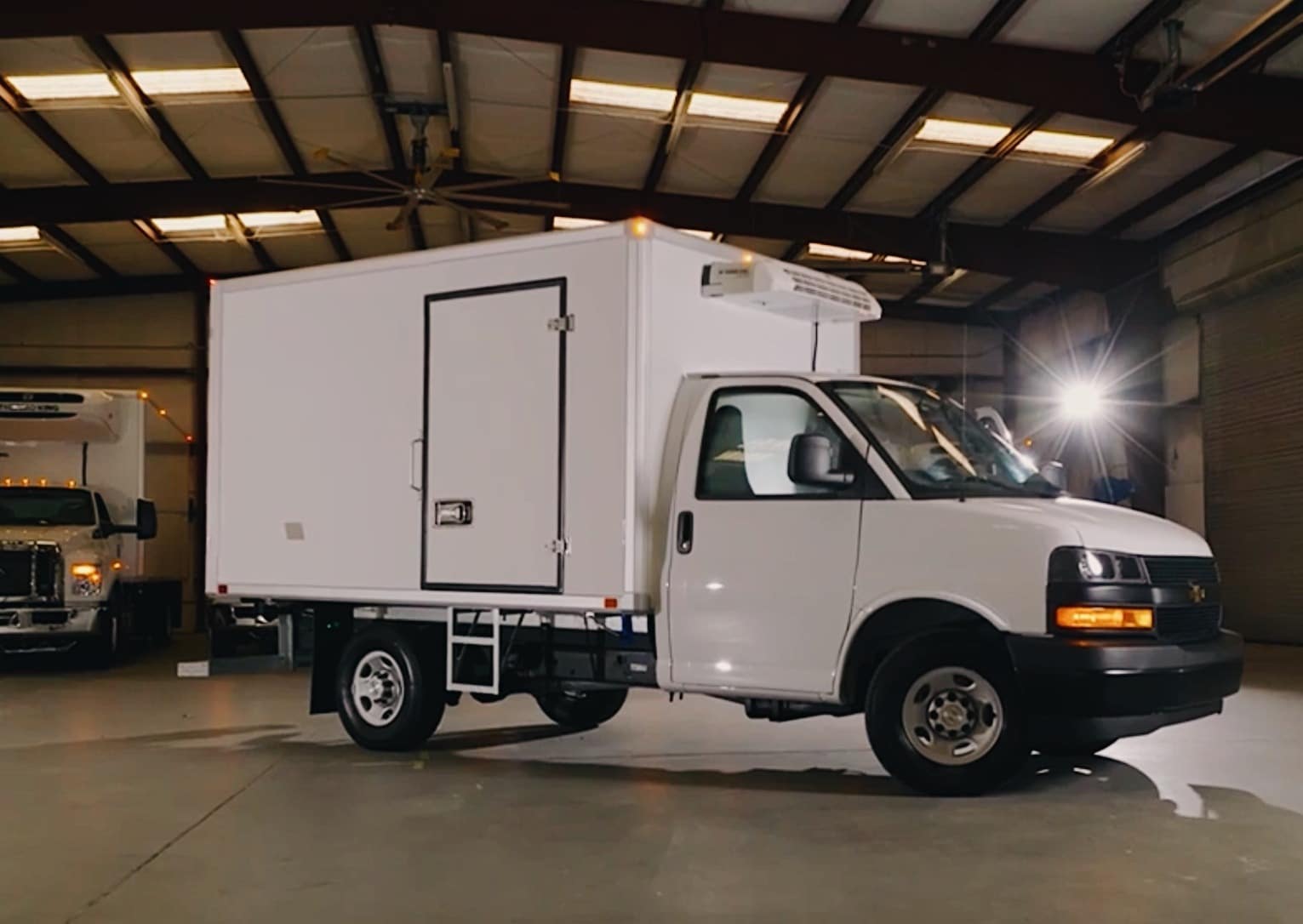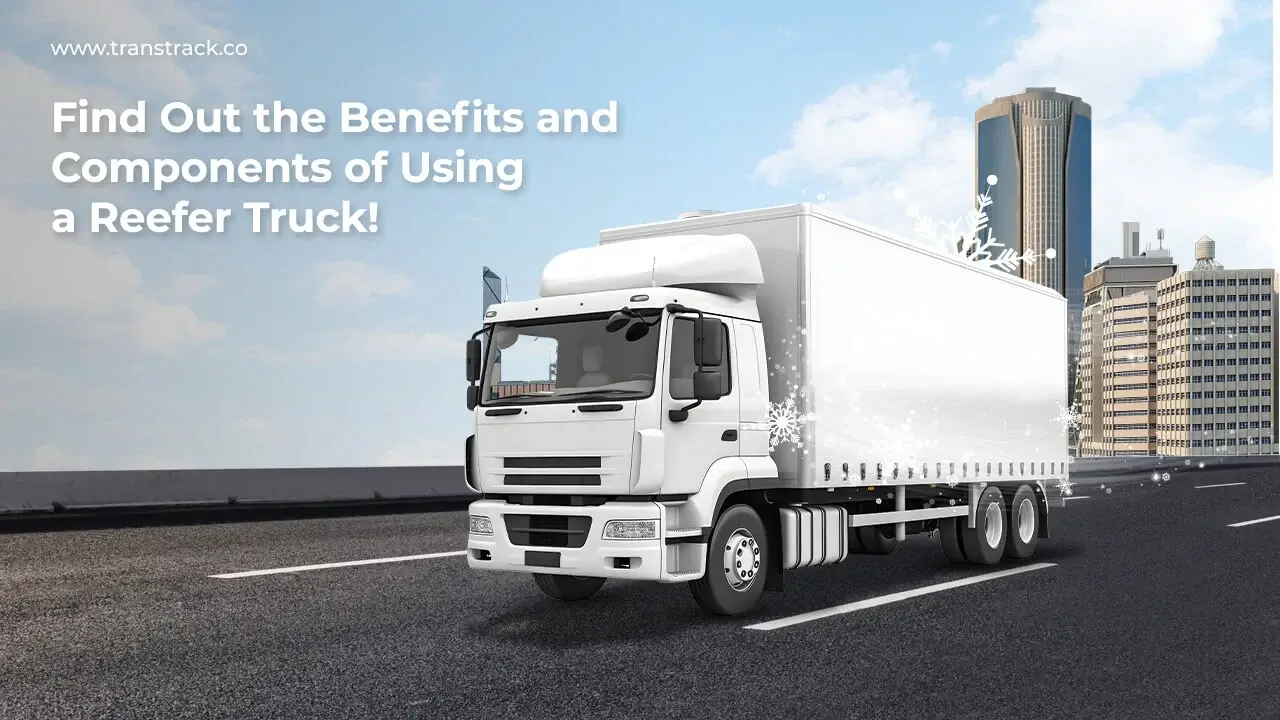Reefer Trucks Thermo King: Leading the Way in Cold Chain Technology
Wiki Article
Top Innovations in Transportation Refrigeration: Enhancing Efficiency and Security
The landscape of transportation refrigeration is undertaking significant makeover, driven by developments aimed at boosting both efficiency and safety. As these technologies continue to evolve, it is crucial to explore their ramifications on operational techniques and regulative compliance, motivating a better assessment of exactly how they reshape the future of transport refrigeration.Smart Temperature Level Monitoring Systems
In the world of transportation refrigeration, smart temperature level monitoring systems have emerged as an essential development for making certain the honesty of temperature-sensitive products. These innovative systems leverage Net of Things (IoT) technology to provide real-time information on temperature level fluctuations, making it possible for operators to maintain ideal conditions throughout the supply chain. By continually tracking the temperature of cooled containers and lorries, companies can swiftly recognize deviations that might compromise item quality.
Additionally, wise surveillance systems commonly incorporate automated notifies and notifications, allowing stakeholders to respond quickly to any prospective problems. This aggressive technique not just reduces the danger of wasting yet additionally boosts compliance with governing requirements controling food safety and pharmaceutical transport.
The assimilation of data analytics within these systems additionally helps with anticipating maintenance, aiding operators to foresee potential devices failures prior to they happen. This ability minimizes downtime and maximizes functional effectiveness, ultimately bring about cost savings.
Eco-Friendly Refrigerants
Smart temperature level tracking systems play an important duty in keeping product quality, however the performance of transport refrigeration additionally pivots on the choice of cooling agents made use of. As environmental concerns climb, the shift in the direction of environmentally friendly refrigerants has actually ended up being imperative. Typical refrigerants, such as hydrofluorocarbons (HFCs), are notorious for their high Global Warming Prospective (GWP), contributing significantly to climate adjustment. On the other hand, emerging options like hydrocarbon-based refrigerants and hydrofluoroolefins (HFOs) existing lower GWP options, supplying both effectiveness and sustainability.
These environmentally friendly cooling agents not only lessen ecological impact yet likewise straighten with worldwide guidelines aimed at phasing out harmful materials. Their adoption can result in boosted energy effectiveness, ultimately decreasing operating expense for transportation refrigeration systems. The usage of all-natural cooling agents, such as ammonia and carbon dioxide, has actually gained grip due to their superb thermodynamic residential properties and reduced environmental footprint.
Buying eco-friendly cooling agents is not merely a governing conformity procedure; it stands for a tactical choice that enhances brand name online reputation and promotes client commitment. thermo king truck refrigeration units. By focusing on sustainable practices, firms can add to a greener future while ensuring the honesty of moved products
Advanced Insulation Products
Using sophisticated insulation products is crucial for maximizing transportation refrigeration systems, as they considerably enhance energy efficiency and keep consistent temperature level control. Traditional insulation techniques often fall short in avoiding thermal transfer, resulting in increased power intake and fluctuating temperature levels within chilled compartments.Emerging products such as vacuum insulated panels (VIPs) and aerogels provide premium thermal resistance, enabling thinner accounts without endangering performance. VIPs, for circumstances, utilize a vacuum layer to lessen convective and conductive heat transfer, making them perfect for space-constrained applications. Aerogels, known for their permeable and lightweight structure, supply outstanding insulation while dramatically minimizing overall system weight.
In addition, incorporating phase adjustment materials (PCMs) into insulation systems can better support temperature levels during transit. These materials soak up and launch thermal power, properly buffering against external temperature variants.
The combination of these advanced insulation materials not just minimizes the operational expenses related to power intake however also expands the life span of temperature-sensitive goods. As the transportation refrigeration industry continues to evolve, the fostering of ingenious insulation technologies will be pivotal in boosting both performance and security in refrigerated transportation.
Automated Course Optimization
The efficiency of transport refrigeration systems is substantially improved with automated path optimization, which leverages real-time information and advanced formulas to identify the most effective paths for distribution. By evaluating various variables such as website traffic patterns, weather, and shipment windows, these systems can considerably decrease travel time and gas consumption.Automated course optimization decreases human error and subjective decision-making, which can result in inefficiencies. This technology makes it possible for fleet managers to designate sources more efficiently, ensuring that refrigerated items preserve their required temperature level throughout the trip. By maximizing routes, firms can also enhance client complete satisfaction with prompt deliveries.
In addition, automated systems can adjust to unforeseen conditions, such as road closures or sudden traffic spikes, enabling for dynamic rerouting. This flexibility not only safeguards the integrity of temperature-sensitive products however likewise adds to total functional performance.
Implementing automated path optimization can lead to significant price savings while reducing the carbon impact connected with transportation. As organizations increasingly focus on sustainability, this development stands apart as an important component in modern-day transport refrigeration, straightening functional goals with environmental obligation. Ultimately, automated course optimization represents a significant improvement in the pursuit for effectiveness and safety and security in transport refrigeration.

Real-Time Information Analytics
Automated route optimization dramatically take advantage of the assimilation of real-time data analytics, which offers essential insights right into the performance of transport refrigeration systems. By using real-time data, transport operators can keep track of investigate this site temperature changes and devices efficiency, ensuring that subject to spoiling items are preserved within required specifications throughout transportation. This positive method not only improves the high quality of the carried items however additionally reduces the risk of putridity and loss.
Along with improving performance, real-time analytics boosts safety by making sure compliance with regulatory criteria for temperature level control. This not just safeguards public health and wellness yet also strengthens a firm's track record - thermo king transport refrigeration. As the transport refrigeration sector develops, the integration of real-time data analytics becomes a foundation for driving advancement, sustainability, and operational excellence
Conclusion
To conclude, the developments in transport refrigeration substantially improve both performance and security within the sector. Smart temperature tracking systems and real-time data analytics provide critical oversight, while environmentally friendly refrigerants and progressed insulation products add to sustainability and energy performance. Moreover, automated path optimization formulas not only lower travel time however also reduce environmental influence. Collectively, these advancements represent an important advancement in transportation refrigeration, making sure compliance with regulatory requirements and advertising a greener future.The landscape of transportation refrigeration is undergoing considerable improvement, driven by advancements intended at boosting both effectiveness and security.Smart temperature monitoring systems play an important function in maintaining item quality, yet the effectiveness of transport refrigeration also hinges on the option of cooling agents utilized. Their fostering can lead to boosted power effectiveness, eventually minimizing operating expenses for transport refrigeration systems. Ultimately, automated course optimization stands for a substantial improvement in learn the facts here now the mission for effectiveness and safety in transportation refrigeration.
In verdict, the improvements in transport refrigeration considerably enhance both performance and security within the industry.
Report this wiki page